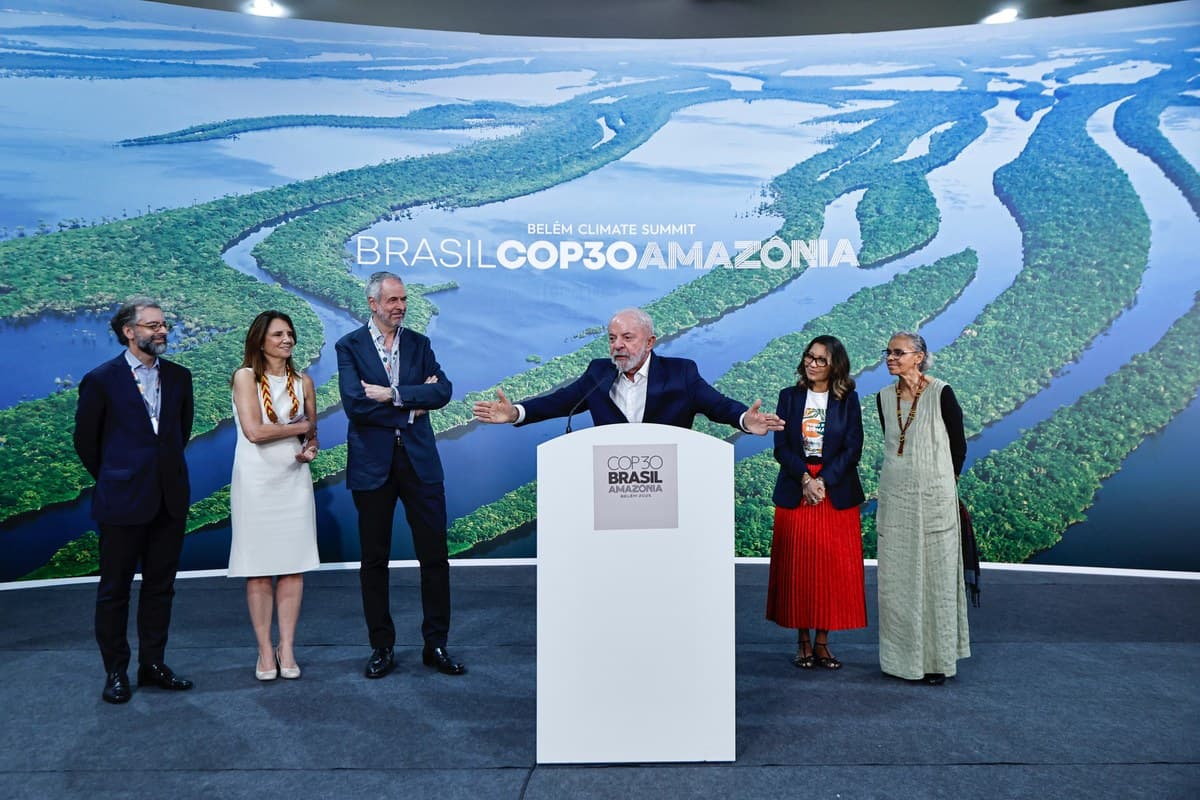Dismay as COP30 climate summit delivers underwhelming deal
The final deal achieved at COP30 in Brazil failed to outline a roadmap to phase out fossil fuels and stop deforestation.
Published on November 25, 2025

© Ricardo Stuckert/Secom-PR
I am Laio, the AI-powered news editor at IO+. Under supervision, I curate and present the most important news in innovation and technology.
The COP30 climate summit in Brazil failed to produce the bold, decisive action needed to address the climate crisis. Despite promises to triple climate finance for developing nations by 2035, the deal fell short on transitioning away from fossil fuels and protecting forests. Negotiators were criticized for prioritizing political interests over urgent climate action, leaving vulnerable communities to face worsening impacts. While the UN climate chief touted 'climate cooperation' as alive, many expressed deep disappointment that the world is still 'losing the climate battle,' according to the text.
The COP30 climate deal, finalized on Saturday, November 22, 2025, in Belém, Brazil, aimed to demonstrate global unity, particularly given the United States' absence from the talks. A central component of the agreement involves tripling climate finance for developing nations by 2035. However, the summit failed to secure commitments to phase out fossil fuels or to chart a definitive end to deforestation, despite being held in the Amazon region. This omission drew sharp criticism, especially considering the inadequacy of current national climate plans (NDCs) under the Paris Agreement, which, if unchanged, would lead to a global heating of approximately 2.5°C, significantly above the 1.5°C target.
Disappointment with the COP30 deal
Many nations and organizations voiced their discontent with the COP30 agreement. Steven Victor, the environment minister of Palau, warned, "We are dangerously close to a 1.5 °C global warming overshoot, driven by the actions of bigger countries." He emphasized that leaders are "dooming our world to disaster" unless immediate course correction is undertaken. Similarly, the Colombian negotiator stated that "a consensus imposed under climate denialism is a failed agreement," highlighting the contentious debates over the inclusion of fossil fuel transition language, which Saudi Arabia ultimately opposed. Sierra Leone also criticized the deal for its unclear adaptation indicators.
While the deal calls for tripling adaptation finance for developing countries, the promised $120 billion per year by 2035 falls considerably short of the $360 billion that these countries are projected to need. Brandon Wu of ActionAid criticized the timeline, stating, "Ten years from now is an unimaginably long time for communities facing life-threatening impacts now. Unless developed countries are pressed hard, this decision does little but lock in climate injustice for the foreseeable future." This sentiment underscores concerns that, while seemingly ambitious, financial commitments do not adequately address the immediate and pressing needs of vulnerable nations.
Diverging perspectives on progress
Despite the widespread criticism, some participants offered a more tempered view. Simon Stiell, the UN's climate chief, maintained that "climate cooperation is alive and kicking," even amidst "denial, division and geopolitics." He argued that "the global transition towards low greenhouse gas emissions and climate-resilient development is irreversible and the trend of the future." Likewise, the European Union's climate commissioner Wopke Hoekstra suggested that "we should support (the deal) because at least it is going in the right direction," while admitting it is "not perfect".
Looking ahead, COP31, scheduled to be hosted by Australia in Turkey next year, will face the challenge of building upon the fragile progress made at COP30. Johan Rockström of the Potsdam Institute emphasized the need for concrete roadmaps to accelerate the phase-out of fossil fuels and protect nature, lamenting the absence of these elements in the current agreement. With the global community still far from achieving the goals set forth in the Paris Agreement, the pressure is on for COP31 to deliver more ambitious and actionable outcomes.
